What Does it Mean When Cats Sleep on Your Bed?

What Does it Mean When Cats Sleep on Your Bed: 6 Reasons You’ll Love.
For many cat owners, the nightly ritual of settling into bed is often accompanied by a familiar, furry presence. Despite having a plethora of comfortable spots throughout the house, your cat chooses to sleep with you.
But why do they do this? What does it mean when cats sleep on your bed? Is it a sign of affection, a claim of territory, or something else entirely?
In this comprehensive guide, we’ll delve into the fascinating world of feline behavior to uncover the reasons behind this common cat habit.
1. Cats Sleep with You for Safety

Cats, despite their reputation as solitary creatures, are actually quite social and rely on their human companions for a sense of security.
Even though your home is a safe haven, your cat’s instincts tell them to be wary. Cats are most vulnerable when they’re asleep, and by choosing to sleep with you, they’re seeking an extra layer of defense against potential threats.
This behavior is a testament to the trust your cat places in you - they know you’re not a danger and that you can protect them if needed.
2. They Seek Warmth
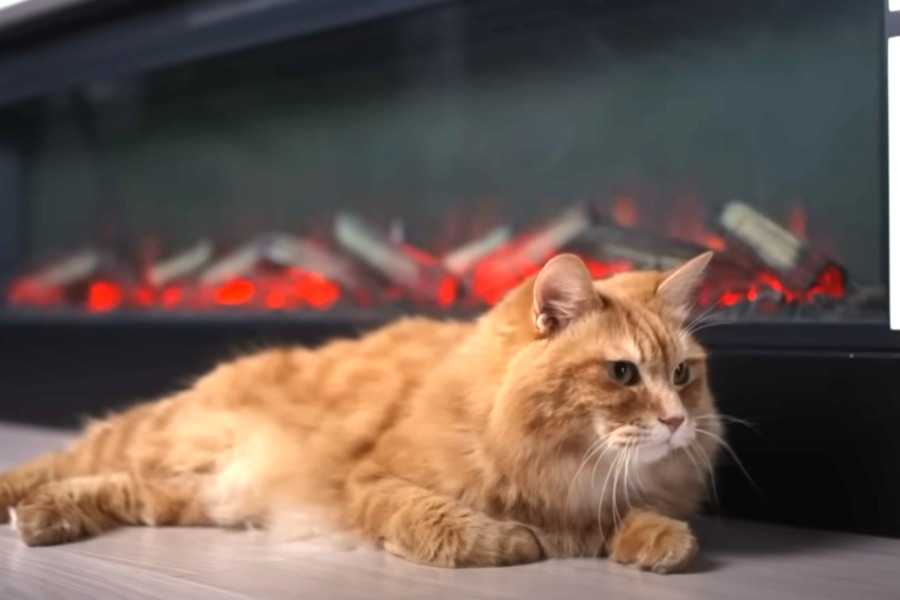
Cats are heat-seekers. Their body temperature is a few degrees higher than ours, which means they’re always on the lookout for warm spots.
Your body heat is a beacon for your cat, especially during colder months. By snuggling up next to you, they’re not only keeping themselves warm but also creating a cozy, shared space that strengthens your bond.
3. They Are Marking Their Territory
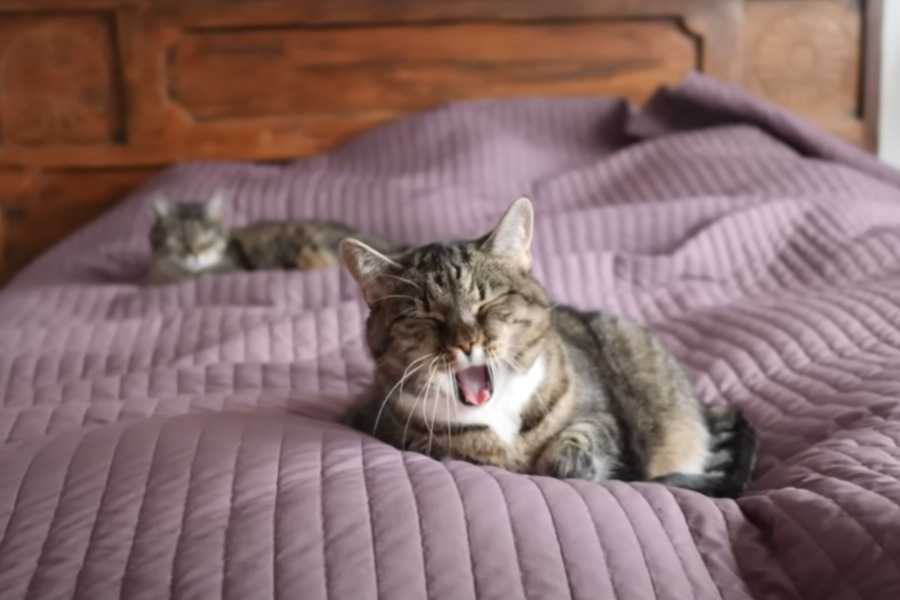
Cats are territorial creatures, and they use scent marking as a way to claim their space. When your cat sleeps on your bed, they’re leaving their scent on both you and the bed, effectively marking it as their territory.
This behavior is a sign of their comfort and familiarity with you. It’s their way of saying, “You’re part of my tribe.”
4. They Think You Need Them

Cats are more in tune with our emotions than we might think. They can sense when you’re feeling down or anxious, and they respond by offering their presence and affection.
If your cat chooses to sleep next to you during these times, it’s their way of providing comfort and easing your worries. This empathetic behavior showcases the deep bond between you and your cat.
5. Comfort Above All

Let’s face it - our beds are comfortable. With soft sheets, fluffy pillows, and a cozy blanket, it’s the perfect spot for a long, restful sleep.
Your cat recognizes this too. Given that cats sleep for 13 to 18 hours a day, they’re experts at finding the most comfortable spots in the house. And your bed tops the list.
6. They Are Showing You Love
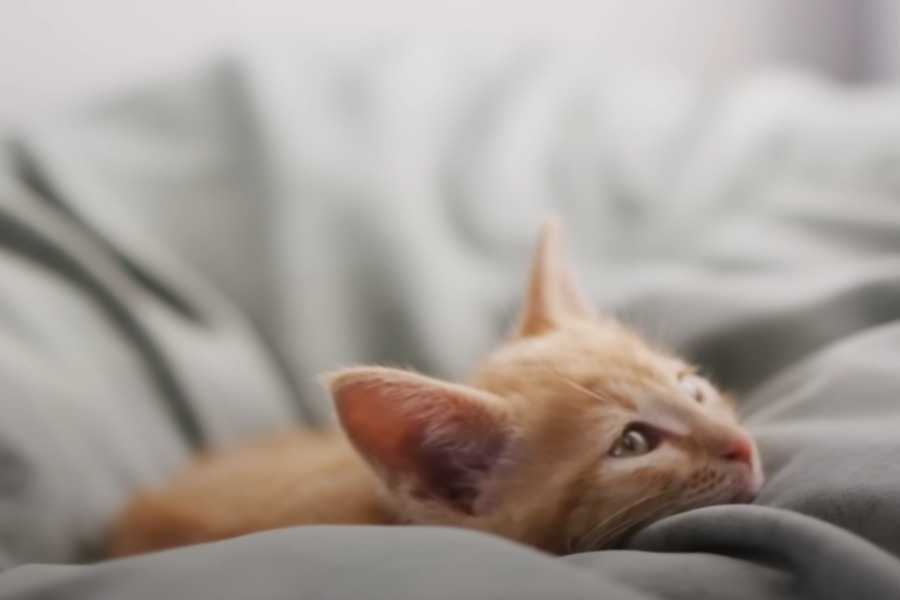
At the end of the day, if your cat chooses to sleep with you, it’s a sign of their affection. They feel safe with you, they enjoy your warmth, and they value your companionship.
This behavior is a clear indication of their love for you. So, the next time your cat curls up next to you in bed, know that it’s their way of saying, “I love you.”
Why Do Cats Prefer to Sleep on Your Head?
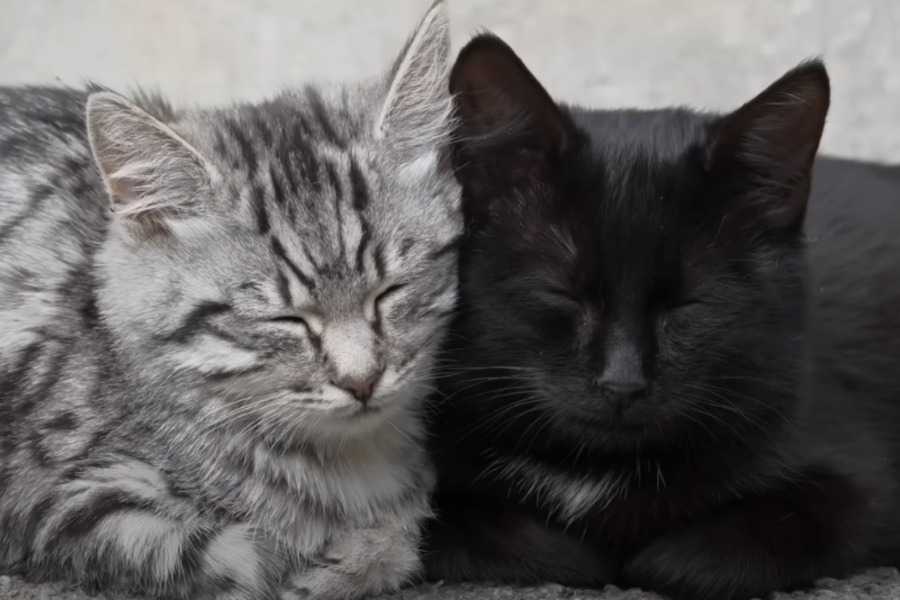
Have you ever woken up to find your cat sleeping on your head or near your pillow? This is a common behavior among cats and it’s primarily because of two reasons.
First, humans lose a lot of heat through their heads, making it a warm and cozy spot for your cat. Second, your head is the least active and least disruptive part of your body during sleep, providing a calm and stable sleeping spot for your feline friend.
Why Do Cats Sleep with Their Backs Towards Us?
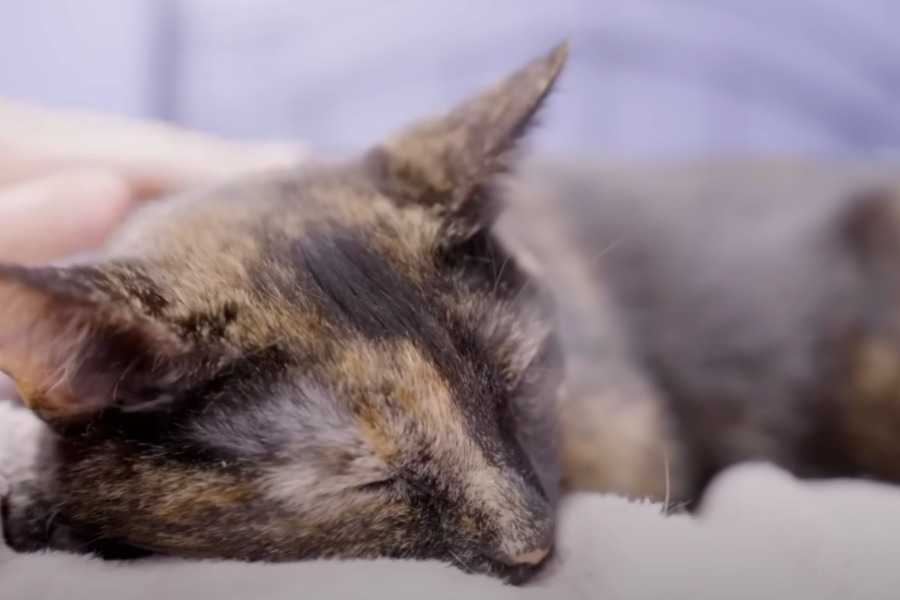
If your cat sleeps with their back towards you, don’t take it as an insult. In fact, it’s quite the opposite.
In the wild, a cat is most vulnerable from the back. So, when your cat turns their back to you, it’s a sign of ultimate trust. They’re confident that you won’t harm them and that they’re safe with you.
Should You Let Your Cat Sleep with You?
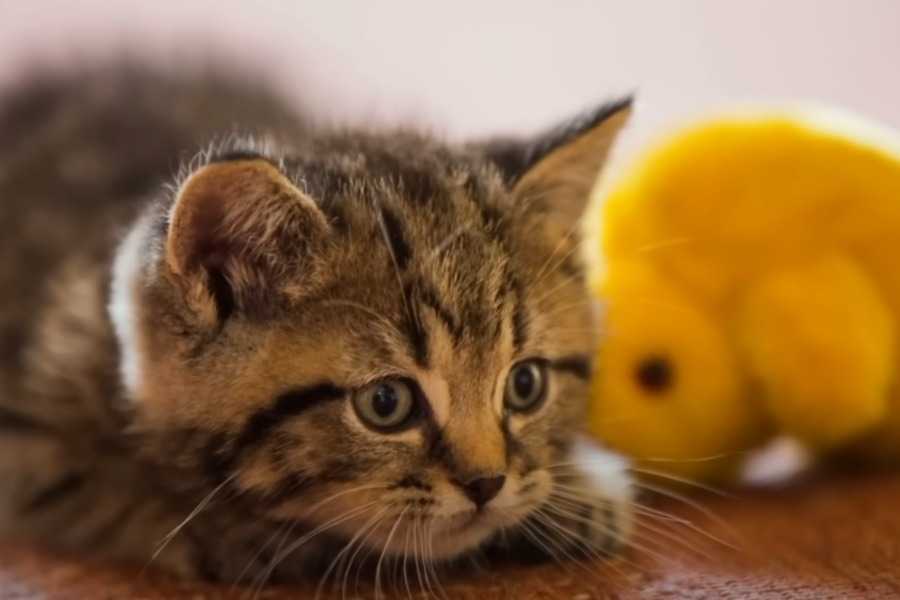
The decision to let your cat sleep with you is a personal one and depends on several factors. If your cat spends a lot of time outdoors or if you have allergies, it might not be the best idea.
However, if your cat is an indoor cat, free from parasites and up-to-date on vaccinations, sharing your bed can be a bonding experience.
It’s important to ensure that both you and your cat are comfortable and able to rest well. If you find that your sleep is disrupted, it might be best to provide a separate sleeping area for your cat.
Why Do Cats Sleep All Day?
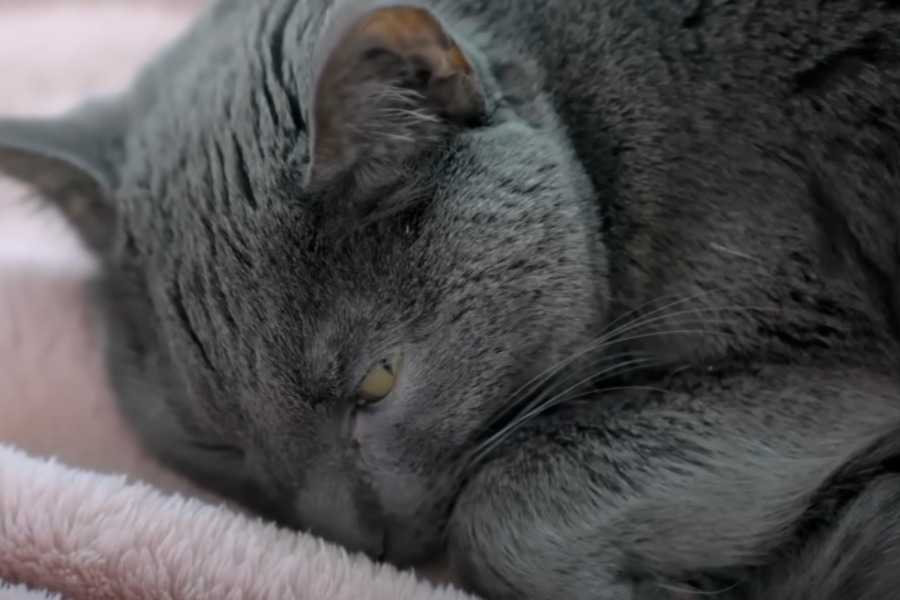
Cats are crepuscular, which means they’re most active during the dawn and dusk. This is why your cat might be full of energy when you’re getting ready for bed or just waking up.
During the day, they conserve their energy by sleeping. To ensure your cat sleeps through the night, provide them with plenty of stimulation and exercise during the day.
Final Thoughts

Understanding why your cat chooses to sleep with you can provide valuable insights into their behavior and deepen your bond. Whether they’re seeking warmth, marking their territory, or simply showing their love, your cat’s sleeping habits are a window into their world.
Remember, every cat is unique, and what applies to one may not apply to another. So, observe your cat, understand their behavior, and provide them with the love and care they need.
Does your cat prefer your bed over its own? Do you let your feline friends sleep with you on the same bed? Share your own experience and make sure to check out our other articles for more insights into your pet’s behavior, such as why my cat has watery eyes and do I need to visit a vet or what shots are needed for cats: everything you need to know about cat vaccines.
Tags
Share
Table Of Contents
Related Posts
Quick Links

